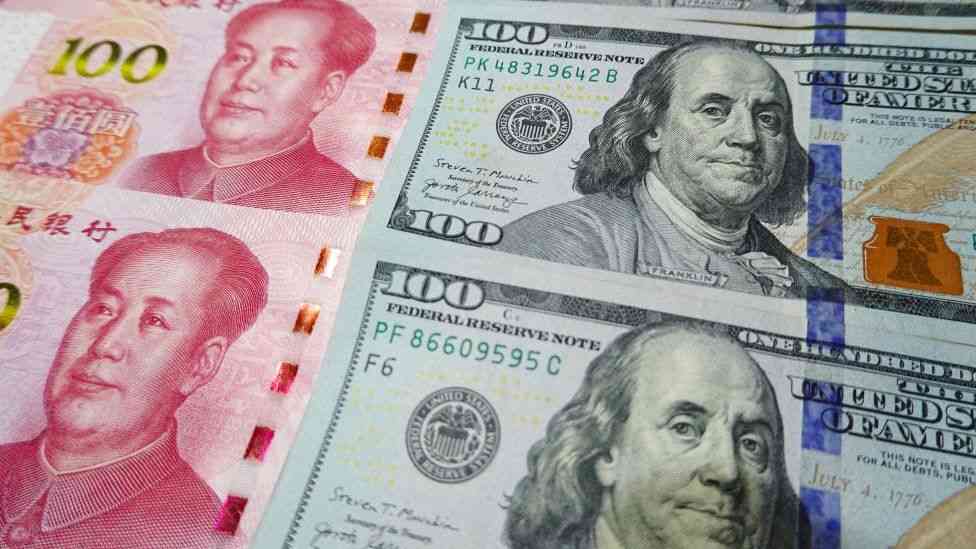
China's government is strongly pushing toward using CBDCs as an immediate alternative to its current system of physical cash or banknotes. In addition, websites here offer trading features like artificial intelligence, trading bots, market analysis, live customer, and much more for bitcoin traders. While many countries have studied technology over the past few years to create an efficient form of currency without banks involved, there are still different learning curves for each country.
Regarding China, the United States and Canada are currently the most significant economies that have already begun to adopt CBDCs. Moreover, there is also a movement within Russia to move towards a CBDC as well.
The current U.S. dollar is also widely used in these countries, whereas it's being challenged by some foreign currencies such as the yuan and euro to gain adoption. The use of digital yuan in health care is extensive, and many healthcare institutions that use mobile payments, such as WeChat, have begun to use the digital yuan. Let's explore a detailed use case of digital yuan in health care.
Is every country adopting Central bank digital currencies?
However, not all countries have had an easy time implementing CMBCs. For example, over the past few years, Iceland and Japan have moved cautiously towards adopting this technology. With regards to Japan, the country was slower to adopt this technology because of its long history with the yen and its oversized banking sector. The primary purpose of Japan's central bank, the Bank of Japan (BoJ), is to make it easier for companies across the country to use digital currency as an alternative payment system.
While in Iceland, a few issues have prevented this technology as well – mainly in regards to the little use of digital currencies in the country and its slow adoption by businesses. Regarding China's issue with payment systems, it can be compared somewhat with U.S.' issues in terms of adoption by individuals and businesses. So far, merely China has successfully rolled out its plans to launch a central bank digital currency.
More manageable payments with digital yuan in health care:
With China's push toward a digital Yuan, users can reap many advantages. First and foremost, moving towards a cashless society can make it much easier to pay for things and store money. With so many different payment systems available (such as WeChat and Alipay), it has become much easier to pay bills and even order items from the convenience of your home.
- Public relations: Which innovations are driving PR in 2022 and beyond?
- Vitalis Takawira Jr tracing dad’s footsteps
- In defence of Trevor Ncube
- Fluidity, collusion: The new PR & communication philosophy
Keep Reading
The use of digital yuan in health care helps patients and hospitals with digitizing medical records. Moreover, securing data about medical research is also made easier with this technology. Moreover, it also makes it easier to keep track of payments between different institutions involved in the research and development of new drugs and tissue cultures. While this doesn't completely replace the need for cash or banknotes, it can help to facilitate transactions much more effectively.
Providing China's slow adoption with regards to digital currencies:
While China may be ahead of the rest of the world in adopting digital currencies, this country still needs to solve issues. For example, over the past few years, many people have said that specific payment systems, such as Alipay, have not been able to reach their full potential because of too many networks involved in transferring money.
With smaller payment systems such as WeChat, it is still challenging for them to grow in adoption. However, it is expected for these small payment systems to grow in China. The demand for digital payments might be enough to make a difference and even increase the success and general usage of these systems across the country.
Better management of patient records with digital yuan:
China's digital currency promotion has also benefitted the health care industry over the past few years. As in many other countries, most transactions in China are made digitally. Retailers, restaurants, and even hospitals have begun using WeChat and Alipay to make payments easier for customers and employees.
In hospitals, digital yuan has been used to receive patients' funds and make payments to doctors from hospital savings. Moreover, there have also been efforts toward digitizing medical records to make it easier for physicians to keep track of patient records. Many hospitals are now using electronic medical records to prevent any mishaps regarding prescriptions or medical charts.
Better tracking of information in the health care industry:
In the healthcare industry, the digital currency has made it easier for hospitals to keep track of the funds they collect from patients. As a result, payments can be made to pay for medical fees and even doctor visits. Moreover, it has also made it easy for physicians to track who owes them money and when would be a suitable time frame for making payment. Over the past few years, many hospitals have begun to move towards e-records to make it much easier for physicians and hospitals to keep track of patient records. It can help improve the overall quality of service and prevent any issues that may arise with intermediaries.










